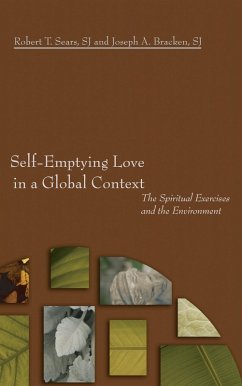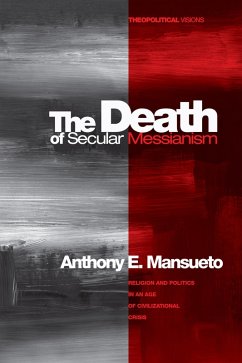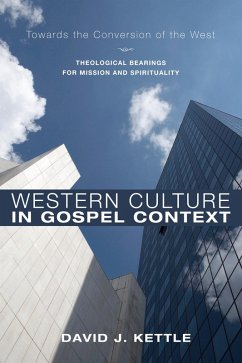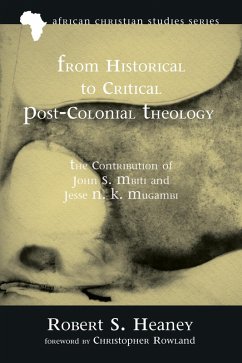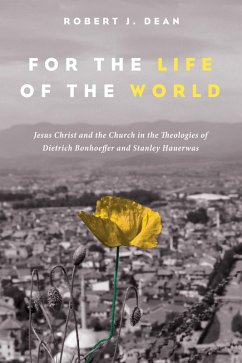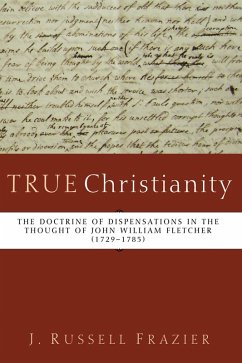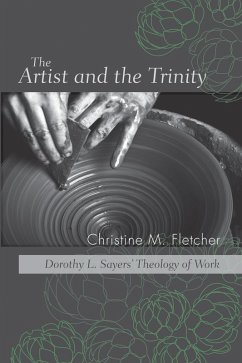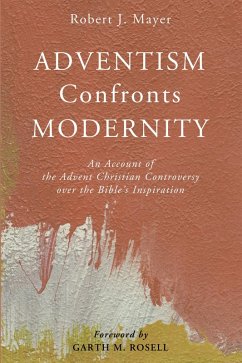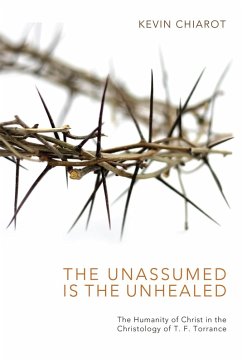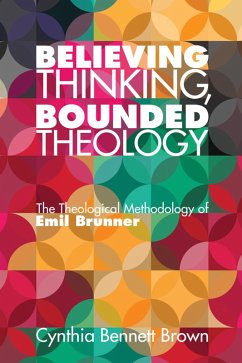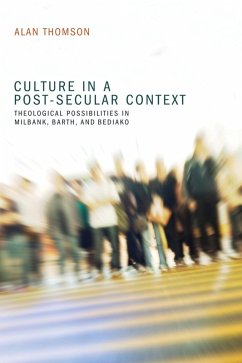
Culture in a Post-Secular Context (eBook, ePUB)
Theological Possibilities in Milbank, Barth, and Bediako

PAYBACK Punkte
14 °P sammeln!
Is culture a theologically neutral concept? The contemporary experts on culture--anthropologists and sociologists--argue that it is. Theologians and missiologists would seem to agree, given the extent of their reliance on anthropological and sociological definitions of culture. Yet, this appears a strange reliance given that presumed neutrality in the sciences is a consistently challenged assumption. It is stranger still given that so much theological energy has been expended on understanding and defining the human person in specifically theological as opposed to anthropological terms when cul...
Is culture a theologically neutral concept? The contemporary experts on culture--anthropologists and sociologists--argue that it is. Theologians and missiologists would seem to agree, given the extent of their reliance on anthropological and sociological definitions of culture. Yet, this appears a strange reliance given that presumed neutrality in the sciences is a consistently challenged assumption. It is stranger still given that so much theological energy has been expended on understanding and defining the human person in specifically theological as opposed to anthropological terms when culture is in some sense the expression of this personhood in corporate and material forms. This book argues that culture is not and has never been a theologically neutral concept; rather, it always expresses some theological posture and is therefore a term that naturally invites theological investigation. Going about this task is difficult however, in the face of a longterm reliance on the social sciences that seems to have starved the contemporary theological community of resources for defining culture. Against this it is argued that rich subterranean veins for such a task do exist within the recent tradition, most notably in the writings of John Milbank, Karl Barth, and Kwame Bediako.
Dieser Download kann aus rechtlichen Gründen nur mit Rechnungsadresse in A, D ausgeliefert werden.




